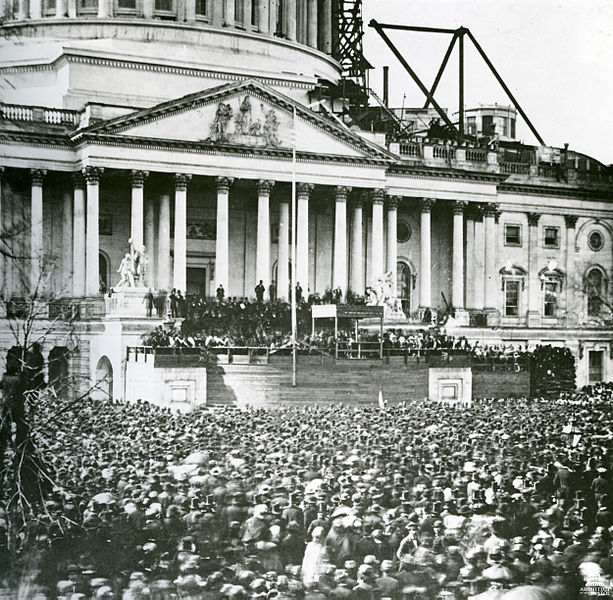
Figure 1 Abraham Lincoln’s first Inauguration, May 4, 1861. From the Wikimediacommons and in the public domain.
In my post on Friday we discussed the Turkish woman in red and how to a disturbing degree image memes represent stereotypes. In a sense image memes are a form of shorthand. And in regard to this shorthand the situation can get darker still. In effect the whole effect can spiral out of control in the mad rush to communicate faster and faster.
In another recent post we discussed our the development of the telegraph by Samuel F. B. Morse (1791-1872) and the laying of the transatlantic cable really represented the world’s first communications internet. The speed of information transfer from the United States to Europe overnight went from three weeks to three minutes. In her book “Team of Rivals,” Doris Kearns Goodwin describes the transmission of Abraham Lincoln’s first inaugural address throughout the nation. This occurred in 1860 just before the laying of Transcontinental Telegraph. The speech was delivered just before noon, but the text printed in newspapers did not reach the anxious Frances and Fanny Seward in Auburn NY until late at night. Because of the Pony Express the speech could be read in Sacramento a mere seven days and seventeen hours after its delivery in Washington.
We tend to focus on the snail’s pace time that it took to receive the address. However, what we should be focusing on is that people read, analyzed, and discussed the text of the address. People greedily processed information in those days. The Lincoln-Douglas debates followed a fixed format. The first speech was an hour long. This was followed by and hour and a half response. Finally, the first speaker got a half hour to rebut the response. So all this totaled three hours of intense reasoning and rhetoric. Contrast this with today’s debates. The speakers are lucky to get three minutes to answer a question and rebut. Most people don’t watch the whole debate, content to watch the sound bites selected by the commentators that agree with their point of view. The same is true of the inaugural speeches.
The meme of the image, the meme of a picture is all that remains. Most people are not critical. If Obama speaks, there’s a whole group that’s going to agree and a whole group that’s going to disagree, based solely on the fact that Obama said it. Show his picture, the Obama meme, and we immediately like or dislike, hate or love. The effect is just as reflexive.
We really need to ask ourselves how in a society as educated as ours we have let our politics become so very superficial. A large part of the blame lies in our need to communicate so fast that rational thought becomes a quite impossible luxury. But, we are dealing with very real, very pressing, and very life or death issues. This is the very dark side of allowing images and memes to become a shorthand that enables us to avoid thinking.
